Are you passionate about sharing the joy of music with others? Crafting the perfect letter for a music teaching job can be your golden ticket to inspiring the next generation of musicians. In this article, we'll explore essential tips and a versatile template to help you showcase your unique skills and experiences effectively. So, whether you're a seasoned educator or just starting your teaching journey, let's dive into the art of composing a compelling application letter!
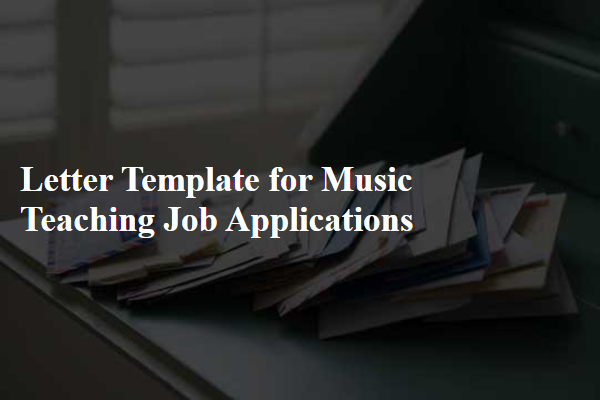
Personalization and Address
Personalization in music teaching job applications is crucial for making a strong impression. Including the school or institution's name, such as "Oakwood High School" or "Harmony Academy," along with the specific music program, like "Orchestra" or "Jazz Band," demonstrates interest and diligence. Addressing the hiring manager by name, for example, "Dear Mr. Smith" or "Dear Ms. Johnson," adds a personal touch and makes the applicant stand out. This targeted approach reflects the applicant's commitment to the position and enhances the likelihood of a favorable response. Tailoring the correspondence to align with the school's mission or values can further reinforce the applicant's genuine enthusiasm for contributing to the music education community.
Relevant Experience and Skills
A music teaching position requires a blend of relevant experience and specialized skills to effectively engage students. Having completed a Bachelor's degree in Music Education from a reputable institution such as Berklee College of Music, candidates bring a solid theoretical foundation. Experience in conducting choirs at local schools or community centers, such as the Harmony Community Choir, showcases the ability to work with diverse age groups and foster vocal skills. Proficiency in multiple instruments, including piano (over 10 years of playing experience) and guitar, allows for versatile teaching methods. Familiarity with various teaching methodologies, including Orff and Kodaly approaches, enhances lesson delivery. Also, organizing annual recitals and performances at local auditoriums, such as the Maplewood Auditorium, demonstrates a commitment to student development and community involvement. Networking with local music organizations, including the National Association for Music Education, further emphasizes dedication to continuous professional growth.
Passion and Teaching Philosophy
The integration of passion for music and a comprehensive teaching philosophy forms the cornerstone of effective music education. A deep-rooted enthusiasm for music, spanning various genres such as classical, jazz, and contemporary, ignites inspiration in students, encouraging their creativity and self-expression. Emphasis on building a supportive classroom environment fosters collaboration and nurtures individual talents, while methods such as differentiated instruction cater to diverse learning styles and abilities. Additionally, incorporating technology, like digital audio workstations (DAWs), in lessons provides modern tools that enhance learning and engagement. Ultimately, the goal is to instill a lifelong appreciation for music, equipping students with both technical skills and a rich understanding of music's cultural significance.
Accomplishments and Credentials
Music educators play a crucial role in developing students' musical skills and fostering a deep appreciation for the arts. Accomplished music teachers often hold advanced degrees in Music Education or related fields, such as a Master's degree from prestigious institutions like Juilliard or Eastman School of Music. They possess credentials from recognized organizations like the National Association for Music Education (NAfME), showcasing their commitment to professional development and best teaching practices. Many effective instructors have experience conducting school choirs or bands, earning accolades such as "Best Musical Performance" at regional competitions like the North American Music Festival. Innovative teaching methods, such as the Orff Approach or Kodaly Method, can significantly enhance student engagement in music theory and practical skills. Moreover, participation in workshops and conferences, such as the annual Music Educators National Conference (MENC), further demonstrates a teacher's dedication to staying current with educational strategies and trends.
Call to Action and Contact Information
Music education plays a vital role in developing cognitive and emotional skills in students, enhancing their ability to perform and appreciate the arts. Aspiring music teachers can greatly benefit from showcasing their passion and expertise through impactful job applications. Contact information should include key elements such as a professional email (example: musicteacher@email.com) and a phone number (example: (123) 456-7890) to ensure easy communication with potential employers. Including a clear "Call to Action" encourages hiring managers to take the next step, often phrased as an invitation for an interview or further discussion regarding teaching philosophy and curriculum development.
Letter Template For Music Teaching Job Applications Samples
Letter template of application for a music teaching position in a private school.
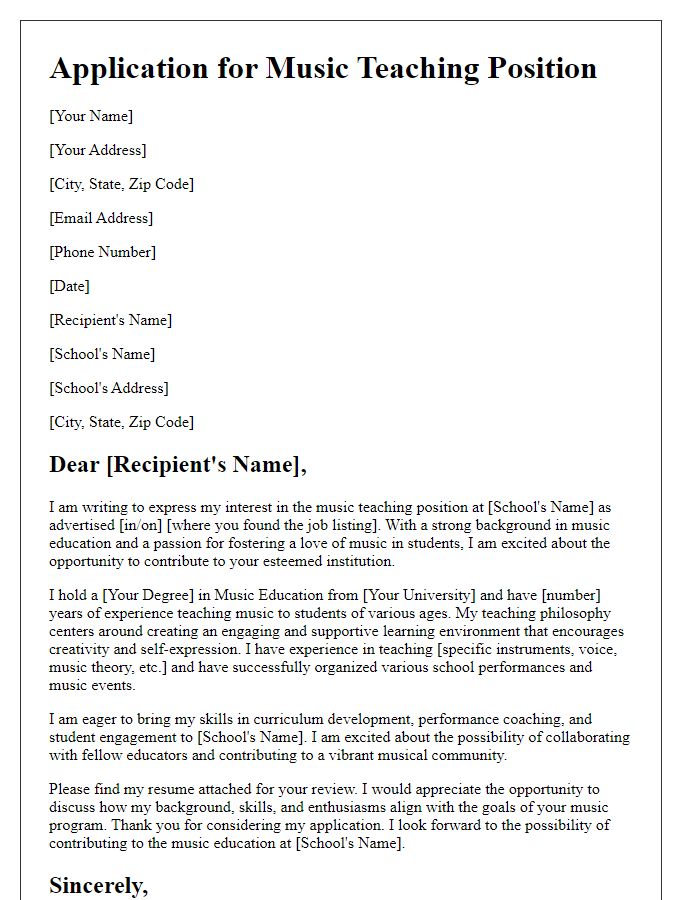
Letter template of expression of interest for a community music educator position.
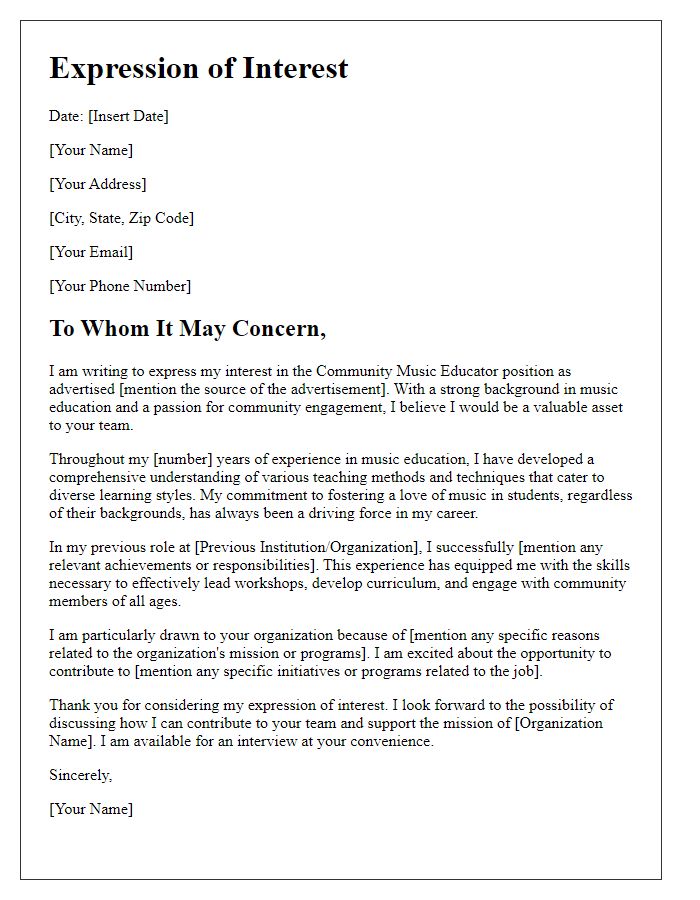
Letter template of application for a music mentor in after-school programs.
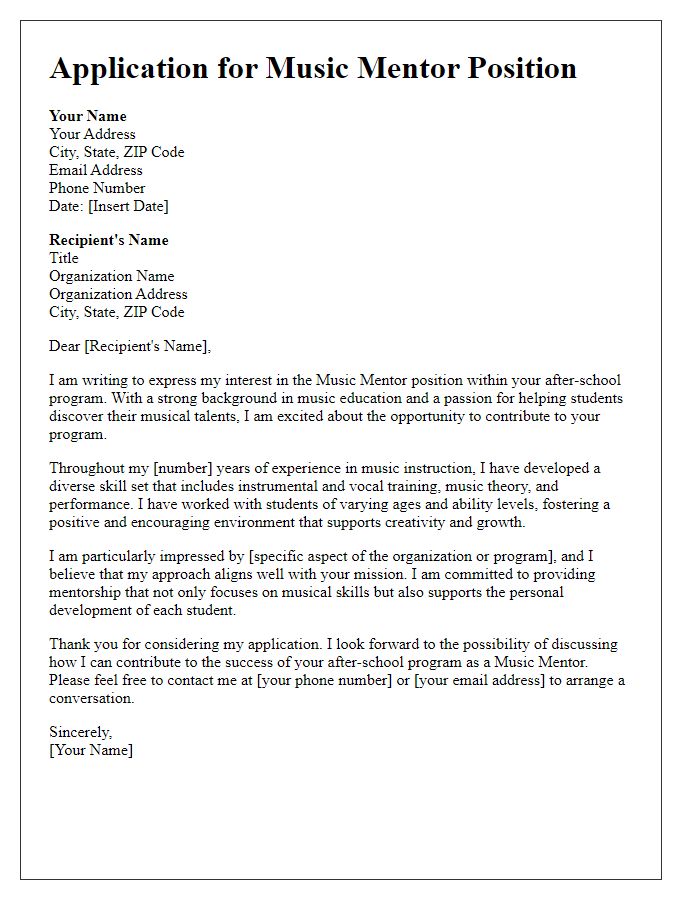

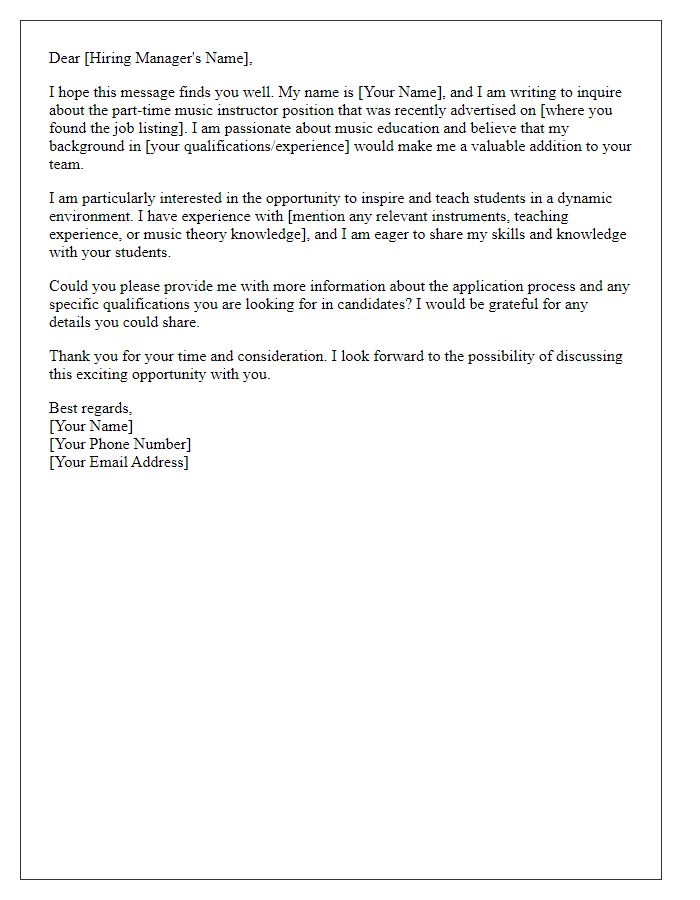
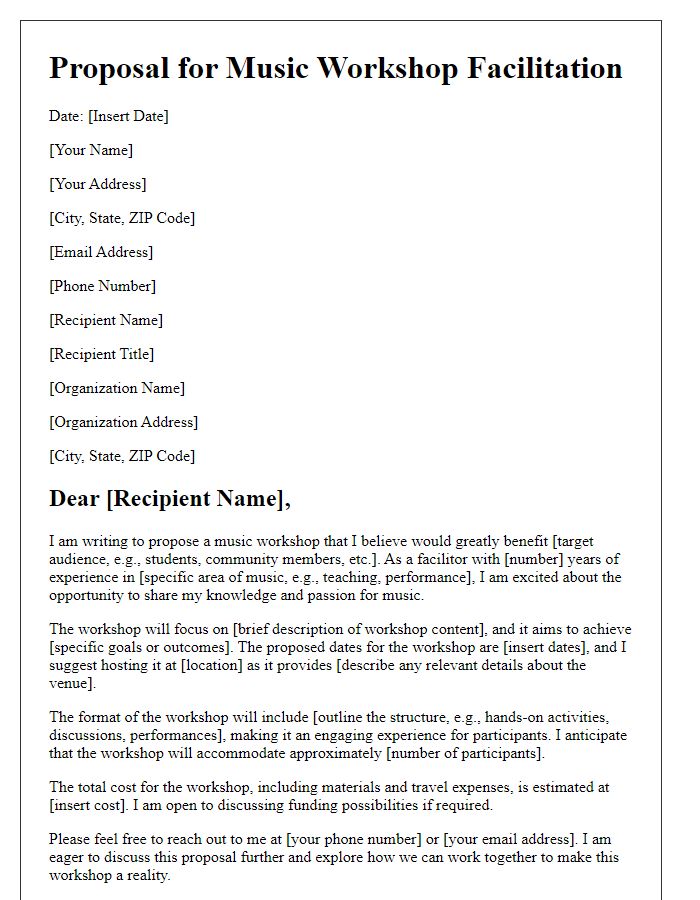
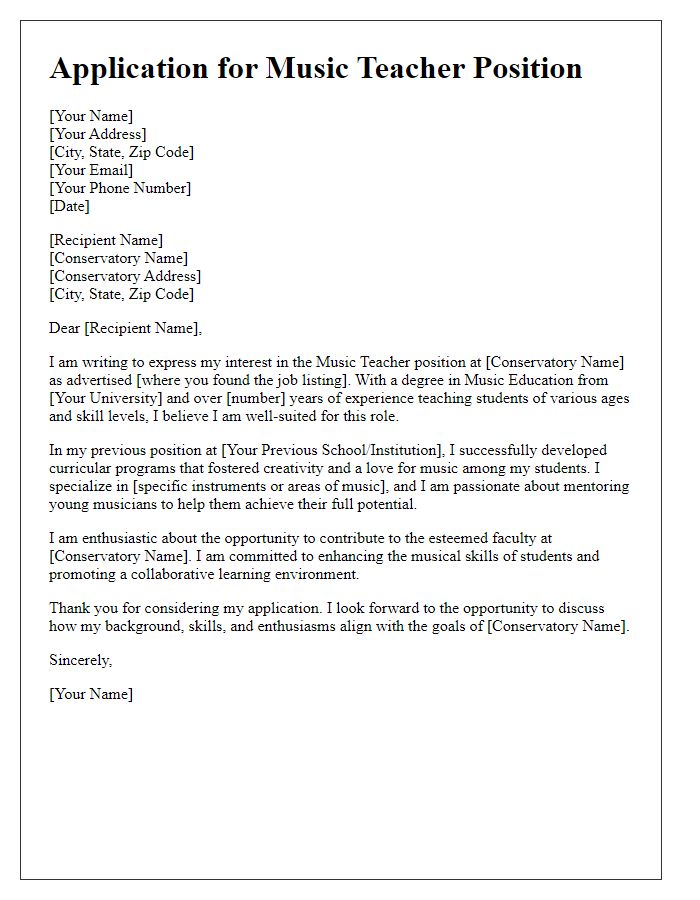
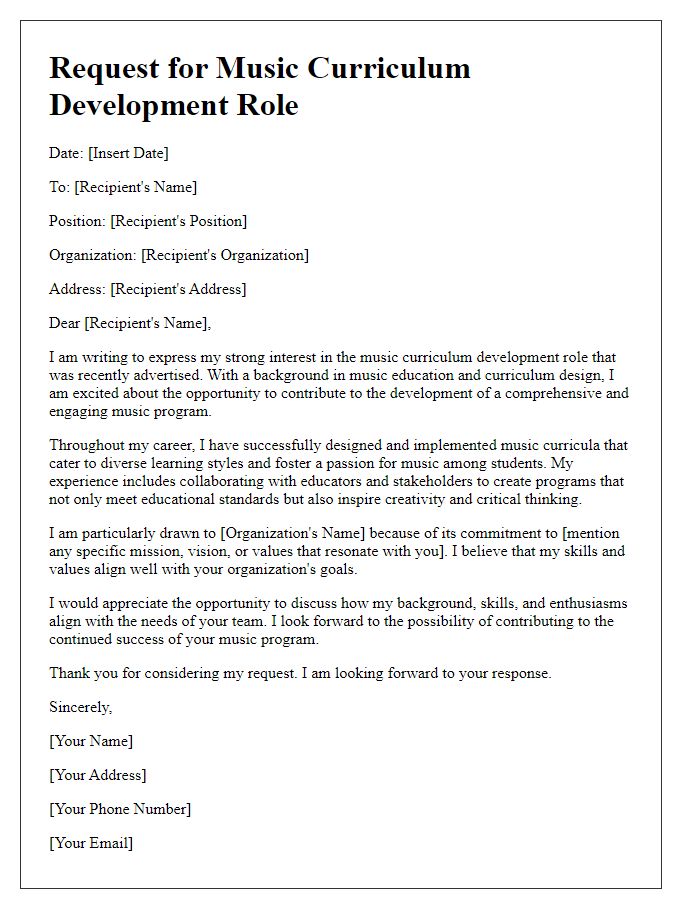
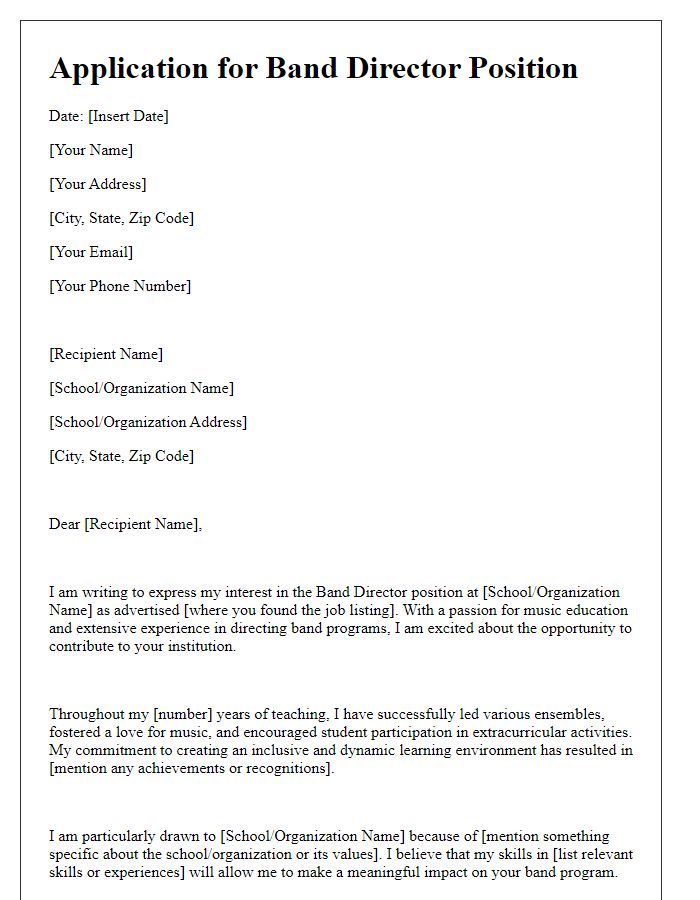
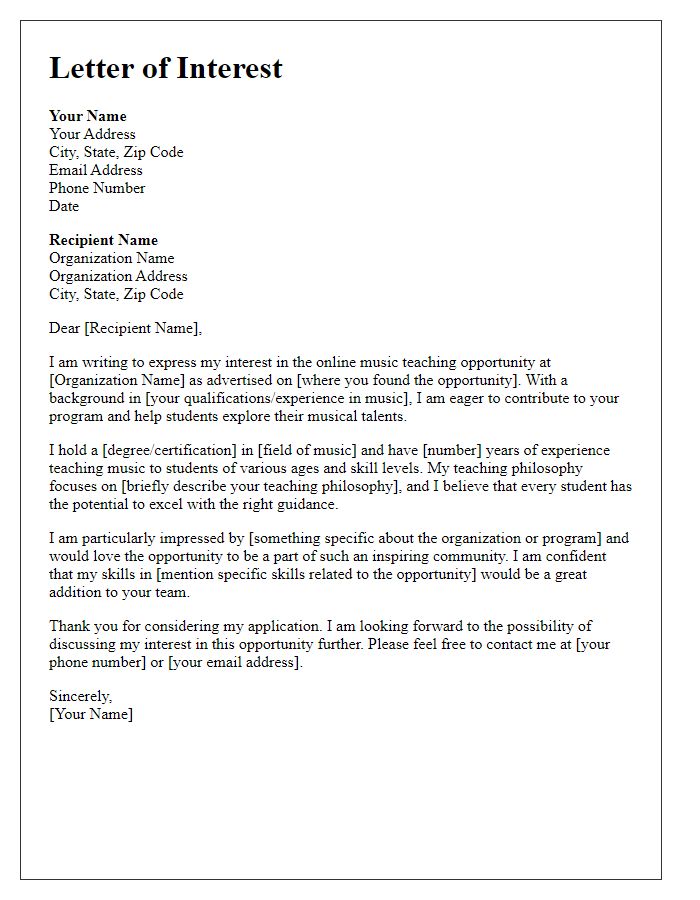
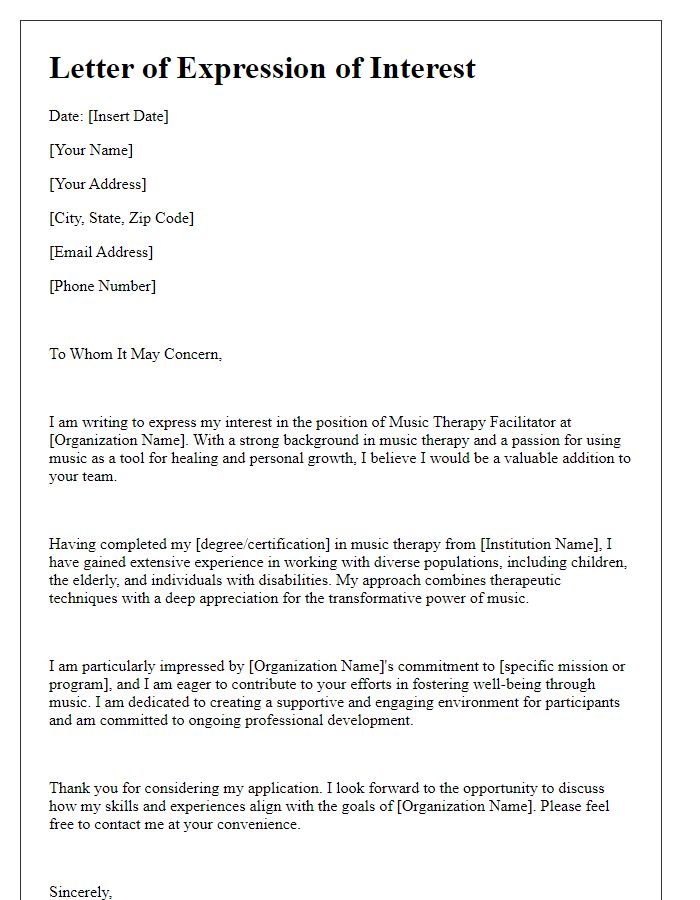


Comments